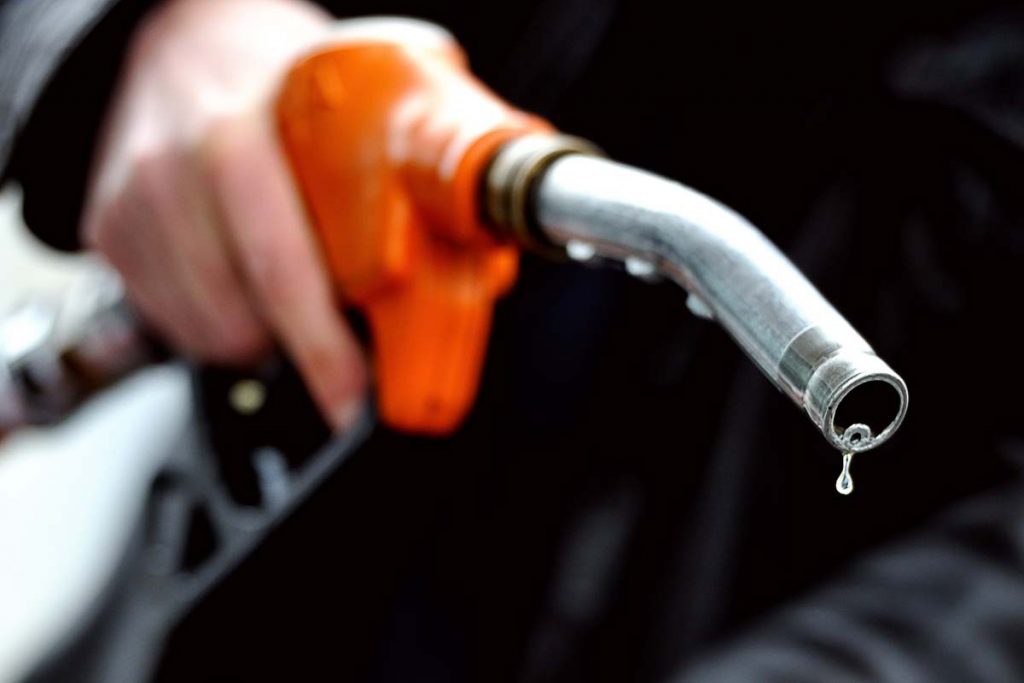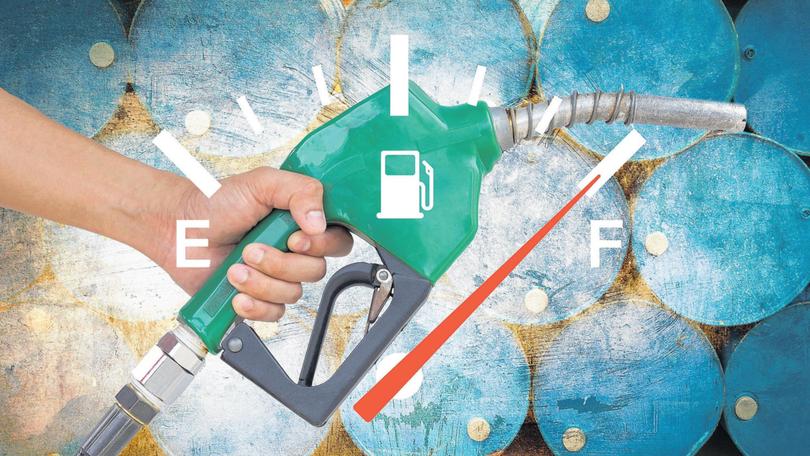Fuel price hikes in recent times have opened gateways for political, economic, and environmental debates globally. This article will discuss the reasons for the fuel price hike and some possible solutions that you can follow to tackle this situation with 24/7 Roadservices Australia.
The Causes of the Fuel Price Hike

Fuel prices are one of the most common causes of the economic crisis in the last century. It can be caused by many factors such as oil prices, government policies, production costs, and others. Global supply and demand determine the fuel price. Therefore, a rise in fuel prices adversely affects individuals, businesses, and the economy. Let us see its impact on each category:
Impact on Individuals
Rising fuel prices severely impact the monthly household budget. As a result, people are unlikely to drive to the location to make purchases. In addition, a higher fuel price means extra cost for transporting a commodity.
The transportation charges on every commodity raise the price of essential goods. In addition, most of the products we use today contain petroleum derivatives. These petroleum derivatives are prevalent in a wide range of industries.
Impact on Businesses
An increase in fuel prices can affect businesses of all sizes. Fuel prices can increase costs and decrease efficiency for companies that rely heavily on transportation to get them to and from their locations.
Apart from individuals, businesses experience areas where they will encounter challenges; these include:
1. Supply and Overhead Costs: When a company has vendors and suppliers who must regularly transport goods from and into its premises for smooth daily operations, it will have to spend a good amount on its operations. Therefore, the transportation costs limit their income opportunities.
2. Jobs: When other counteractive measures don’t yield good results, companies will begin to cut down on staffing as layoffs and reduced work hours.
3. Pricing: When businesses are highly pressurized, even after taking several initiatives, they will pass on the burden to the consumers, costing them more.
Additionally, for businesses with a large number of employees who commute to work, an increase in fuel prices can lead to higher employee costs and reduced productivity.
How will Fuel Price Hike Affect the Entire Economy?
When individuals and businesses experience a financial setback, it reflects on the economy. For example, a rise in fuel price can increase the cost of goods manufactured overseas. As a result, the cost of many majorly used products goes up, resulting in inflation.
Inflation refers to the reduced ability of a unit of currency to purchase only fewer goods and services. In the long run, this situation curtails economic growth. In addition, a sluggish economy decreases the selling ability of businesses.
Further, this forces them to re-evaluate their hiring plan, which means fewer job opportunities. Therefore, if the respective governments don’t intervene at the right time, it can lead to economic turmoil.
What is the Reason for the Fuel Price Hike?
Although demand for fuel is a cause for the price hike, some scenarios altered the global supply-demand pattern for fuel prices. These variations impacted global fuel consumption, which led to the actual reasons for the fuel price hike.

As we have seen the enormous impact of rising fuel prices, let us now discover the reason for the fuel price hike:
1. Post-pandemic demand for fuel
The COVID-19 pandemic caused a sudden drop in demand for oil, reducing its supply. However, the oil demand peaked during the post-pandemic phase, whereas the supply was still not meeting the pre-covid levels. These situations have altered the supply and demand pattern of fuel prices.
Due to this flickering pattern, the rising demand and the fuel supply don’t match, leading to a hike in the fuel price.
2. Cuts to Oil Production
OPEC (Organization of the Petroleum Exporting Countries) and other oil-producing countries had curtailed oil production, citing the pandemic. However, they could not ramp up oil production to the global economy’s recovery speed.
Therefore, the slower ramping up of oil production has contributed to the rising fuel prices.
3. Russia-Ukraine War
When the fuel prices were steadily rising, Russia’s plan to go to war with Ukraine aggravated the spike in oil and gas prices in just a few weeks.
This is because Russia is one of the significant oil-producing countries globally.
4. US Sanctions on Russia impact the global market
Despite Russia’s war in Ukraine, the US has issued some sanctions on Russia, aiming to block its primary revenue from oil and gas imports. This move has curtailed Russia’s ability to export oil to the global market. Consequently, the market reacts with a rising price.
History of Global Transportation
The discovery of fossil fuels powered the industrial revolution to tap into fuel resources like coal, oil, and natural gas. Steam and electrical engines powered the global transportation system with these energy reserves. However, this vehicle consumes less fuel, less than 5% of the world’s energy reserve fuel.
As of today, global transportation thrives, facilitating the movement of people and goods. According to the Energy Information Administration, vehicles consume 25 per cent of the world’s energy reserve.
Motor gasoline and diesel dominate energy consumption. While motor gasoline is primarily used to move people, diesel fuel helps transport goods. In addition, petroleum products account for the largest share of transportation energy.
For the past few years, rising fuel prices have been a cause of concern universally. Although governments are trying to deal with it, their efforts have not been fruitful.
What Alternatives are Available?
Transitioning to alternative fuels is one way to combat price hikes today…
The government and authorities can take advantage of this opportunity to drive people towards a cleaner, more efficient, and sustainable fuel option.
Here are some steps to efficiently ease your life amidst the rising prices:
Using Public Transport System for Travelling
Accessing public transport during these unprecedented times is the best option. However, governments have to motivate people to use public transport,
Here are some ways to encourage the public:
- Governments can issue incentives in free or discounted bus, rail, or public transportation passes.
- Incorporate some new gadgets such as headgear, internet, or music in each seat to attract the paying public.
- Students can be encouraged to adapt to active travel options such as walking and bicycling.
Using Electric Vehicle for Travelling
Electric cars are becoming a more viable option when it comes to alternative fuel energy. Rechargeable electric car batteries are an excellent replacement to combat fuel consumption.
In addition, electric vehicles have the following benefits over gas-powered vehicles:
- The running costs of electric vehicles are five times less expensive than gas-powered vehicles.
- Covering a mile with electric vehicles is two to three times less expensive.
- Electric vehicles are well-suited for highway driving.
- They allow drivers for quick acceleration, avoiding risky driving situations.
- If the durability of electric car batteries worsens, their cells can be serviced and replaced.
These batteries consist of minerals and elements like cobalt, lithium, and nickel, which can be used to produce new batteries.
The fuel consumption in electric car batteries is energy that is rechargeable or can be produced using solar panels, meaning it runs on renewable energy…
Using Solar Energy to Generate Fuel
Recent developments in solar energy have allowed us to combine sunlight and water to produce hydrogen, solar fuel. Solar fuel is sustainable, doesn’t emit carbon dioxide, and is storable and versatile.
A well-known example of solar fuel is the zero-emission hydrogen fuel cell car. These cars are powered by hydrogen, stored in a fuel cell, and later used to extract electricity. These cars can travel up to 400 miles between fill-ups due to hydrogen tanks.
However, the high cost and the need for fueling stations curtails its benefits.
Possible Solutions to This Problem
Despite the challenges, there are numerous ways to save fuel. For example, you can always drive shorter distances or focus on increasing fuel efficiency. For this purpose, plan your trips using a GPS route planner strategically.
This will help you find highways or routes with minimum stoppage, less traffic, and fewer diversions. This way, you can maintain a steady speed and achieve fuel efficiency.
In addition, you can always use a fuel consumption calculator to estimate your trip’s fuel cost based on fuel efficiency, distance, and gas price.
Tips for Saving Fuel in Petrol & Diesel Vehicles

Apart from planning your route trips, you have to focus on maintaining your vehicle to achieve maximum efficiency. Here are some tips to follow:
- Turning off a car with its engine boosts fuel efficiency by 4 per cent, depending on the nature of the repair.
- When you fix a faulty oxygen sensor, you will notice a 40 per cent increase in fuel efficiency.
- Avoid excessive idling and utilize cruise control and overdrive gears to use the engine efficiently.
- Check your Tyres for proper inflation at least twice a week to reduce fuel consumption by 3 per cent.
- Oil your motor as per the manufacturer’s recommendation to reduce fuel consumption by 1 per cent to 2 per cent.
- Keep your acceleration at a constant rate and try to drive slowly.
- Some credit cards tie up with certain gas stations or petrol pumps and offer discounts. You can avail yourself of this offer to save on fuel spending.
Petrol vs Diesel: Which fuel Consumes more?
Petrol and diesel are used in cars and trucks. However, petrol consumes more fuel than diesel. Petrol engines work by using air as a source of energy, while diesel engines work only by using oil.
Specific fuel Consumption of Diesel Engines and Petrol Engines:
Diesel engines typically use less fuel than petrol
engines. However, because diesel engines produce more
heat, they require more fuel to maintain a given speed and
distance. You can adjust your driving habits to conserve
fuel to compensate for this. Or else the emergency
roadside assistance plans
will be helpful for you to overcome that kind of
situation.
For example, you can drive at lower speeds and take
shorter trips. You can also use the cruise control to save
even more fuel when possible.
Petrol engines are less efficient than diesel engines when converting energy into motion. This means that a given quantity of petrol will consume more energy than a given quantity of diesel for shorter distances.
Conclusion
The pandemic-induced low gasoline supply and a war-induced high demand for crude oil have caused fuel price hikes. In addition, Russia’s sanction due to its invasion of Ukraine has worsened the scenario.
Governments of several countries are taking various measures to tackle fuel price hikes. Still, this scenario is expected to remain for quite some time. Hence, adapting to alternative fuels and strategic fuel consumption are the only options to tide over this rising wave until it subsides.
However, this situation calls for the need to completely adapt to a sustainable and renewable alternative energy source in the long run. In that sense, hydrogen fuel cars are an excellent option.
Hence, we have to work on building the required infrastructure and cost reduction to avail the best use of this technology.


